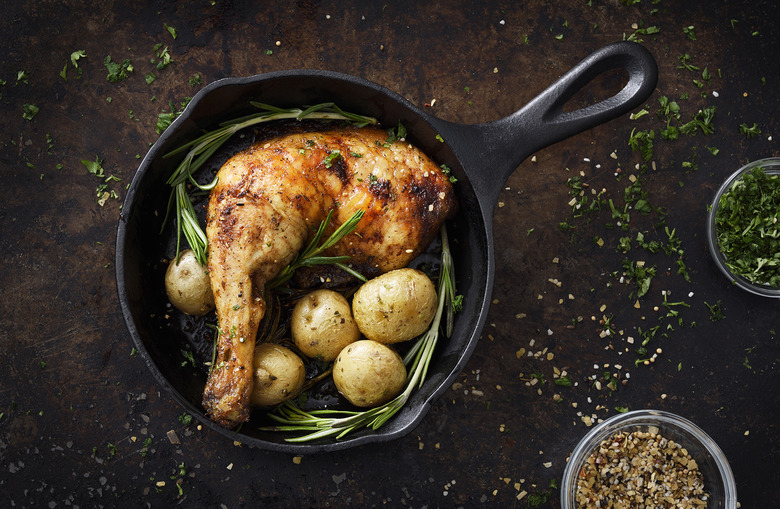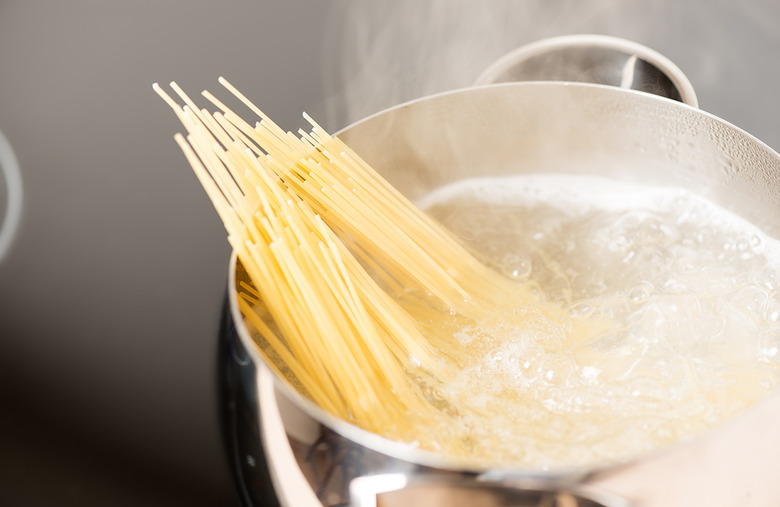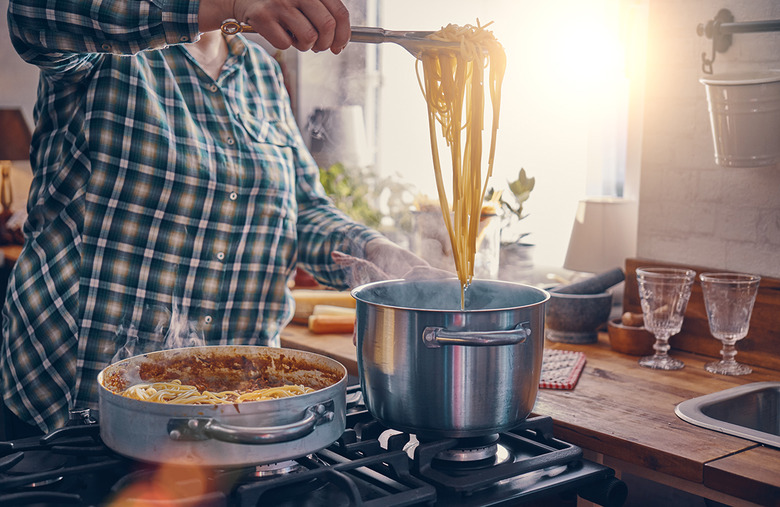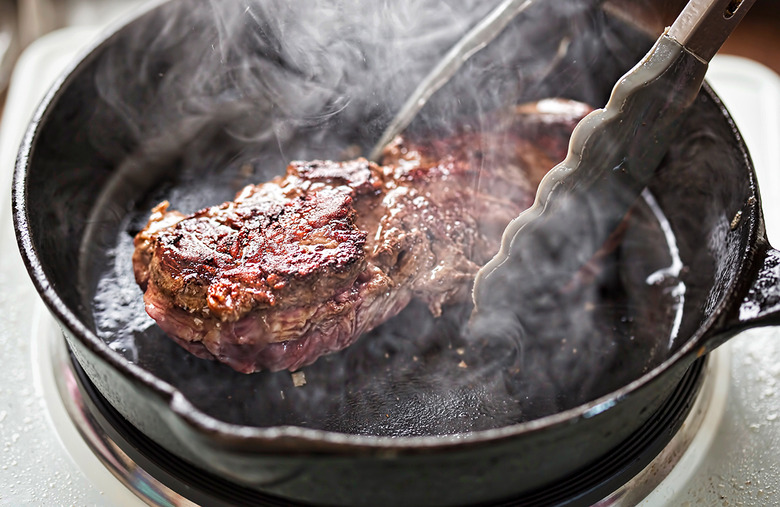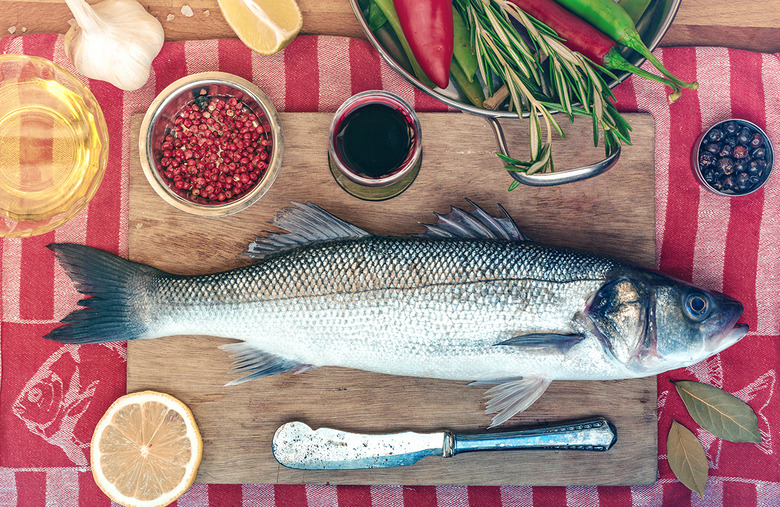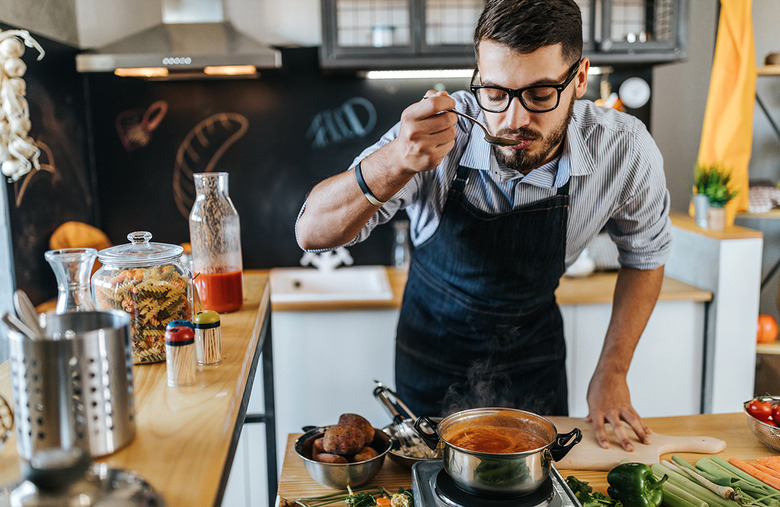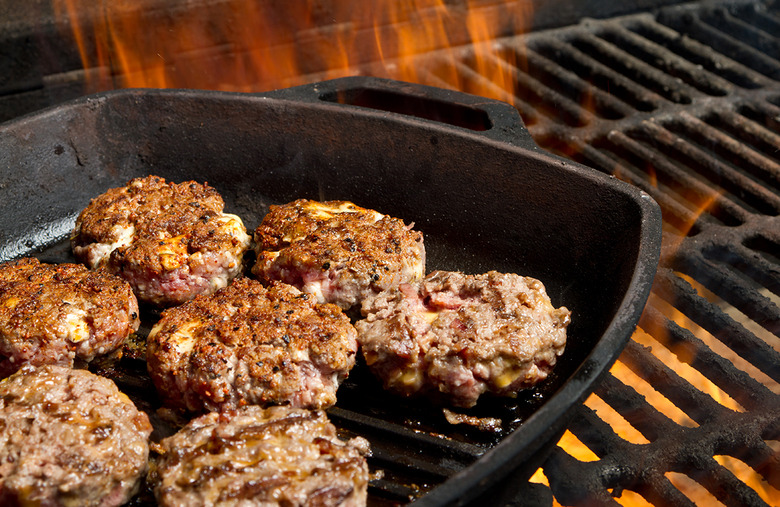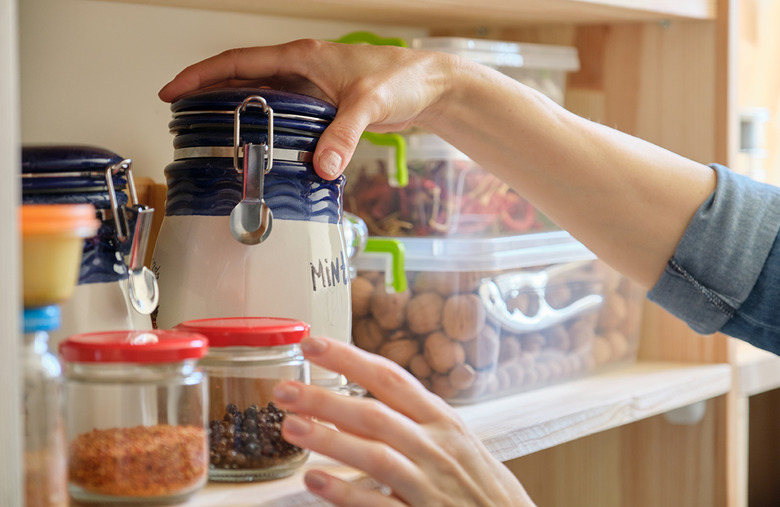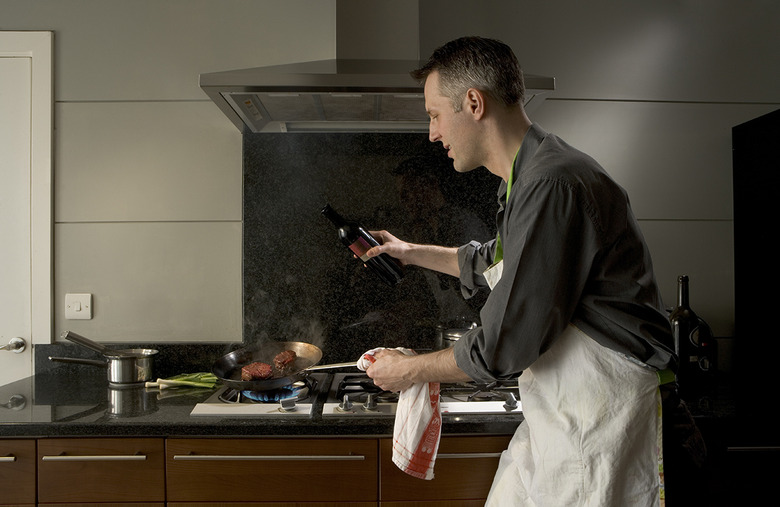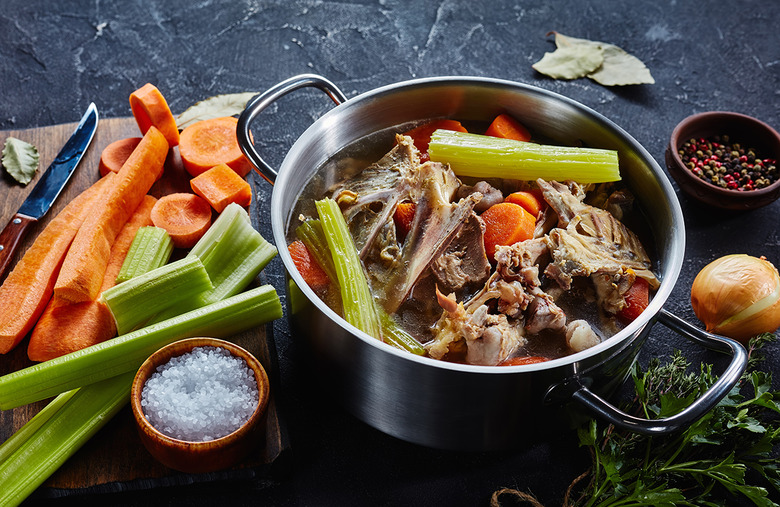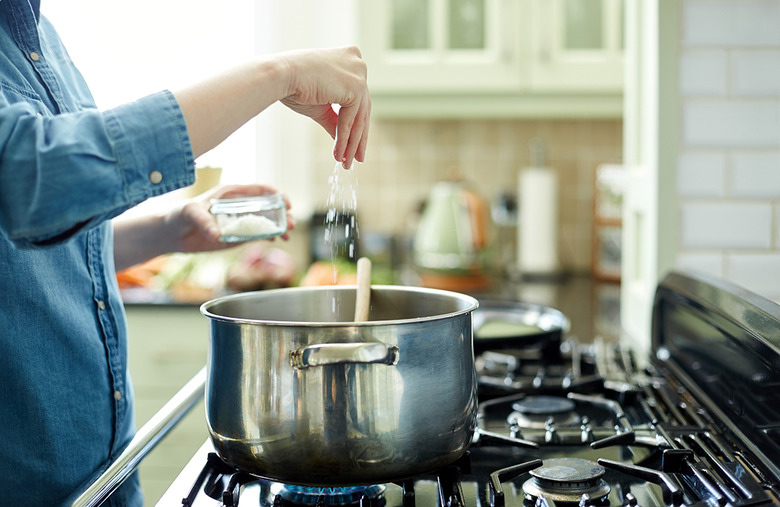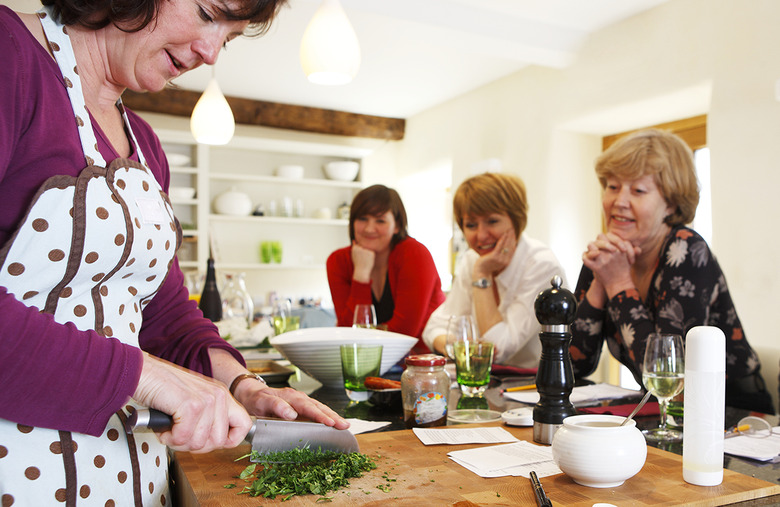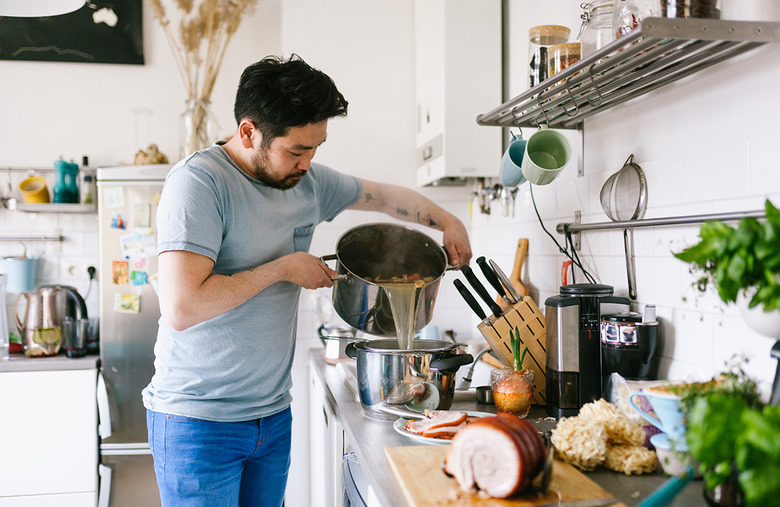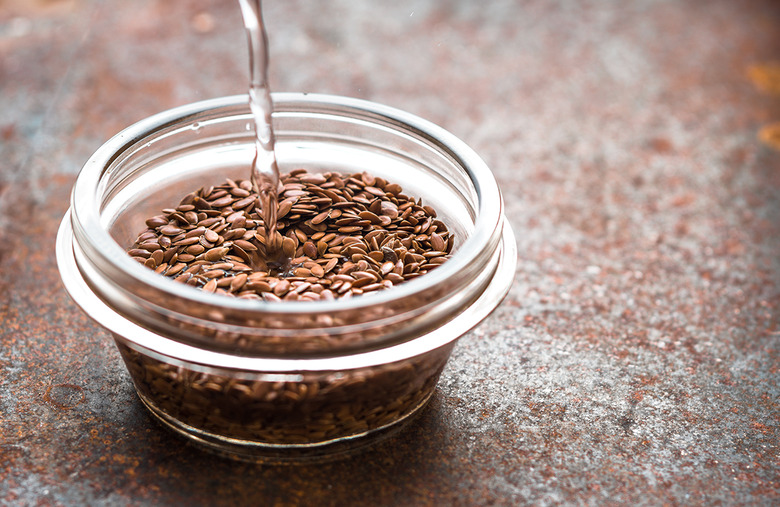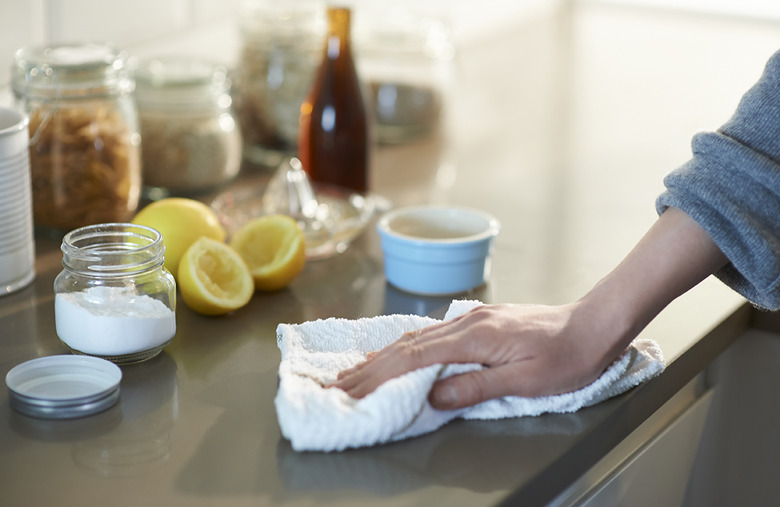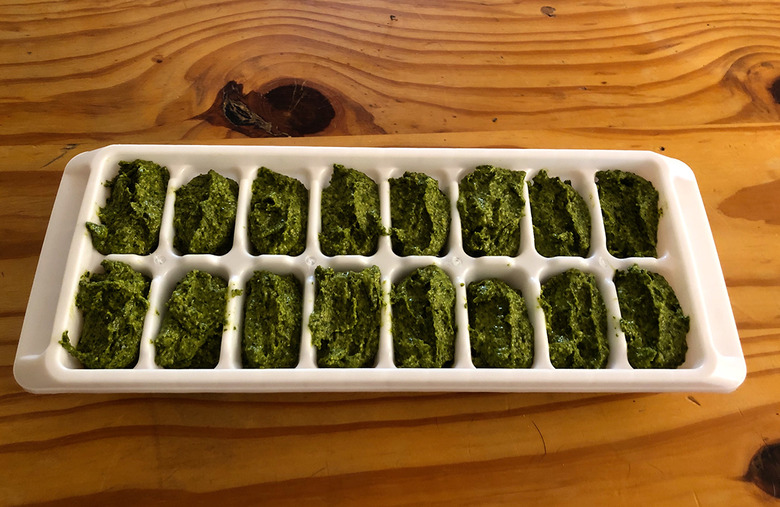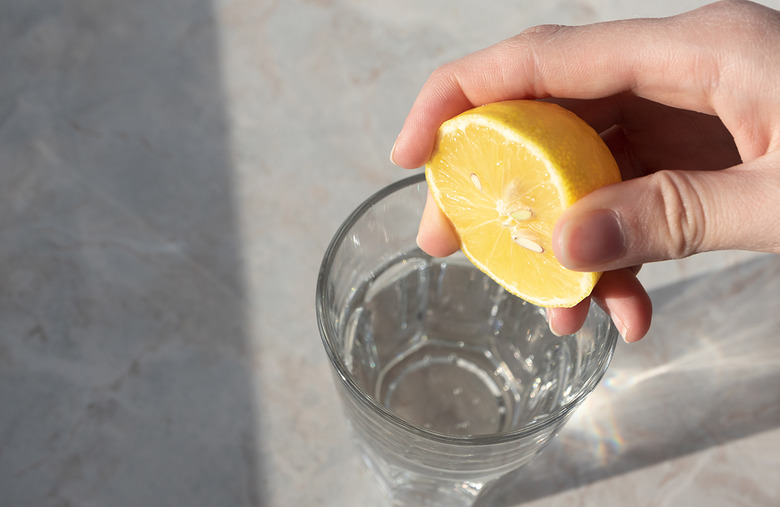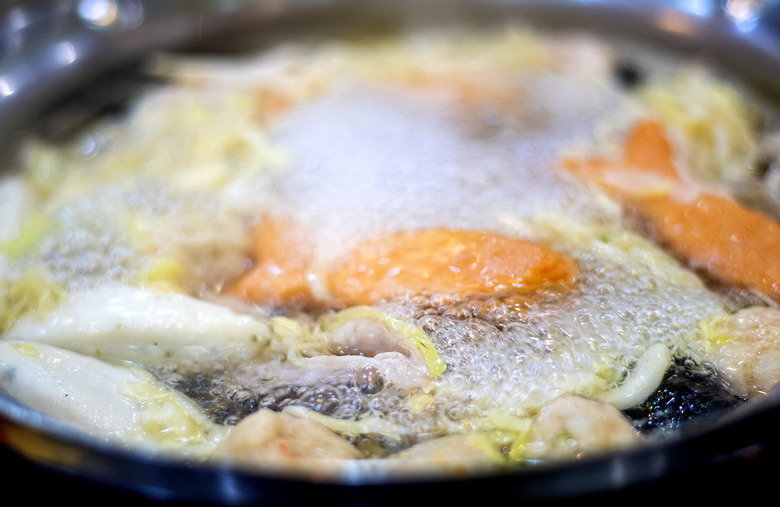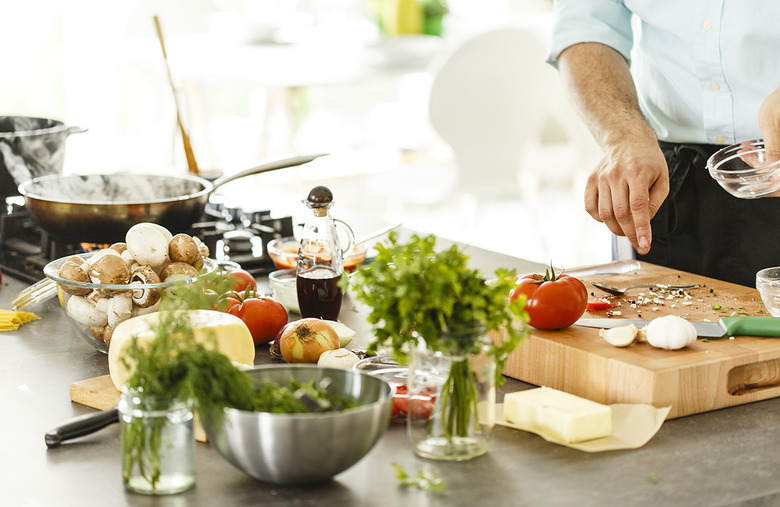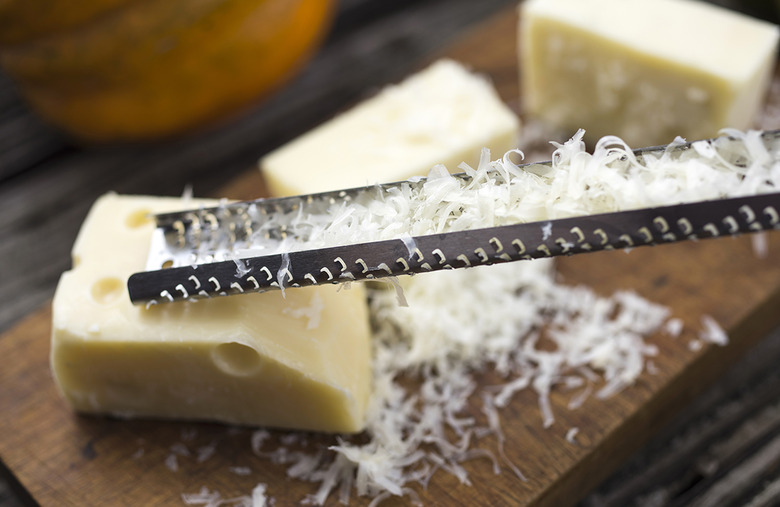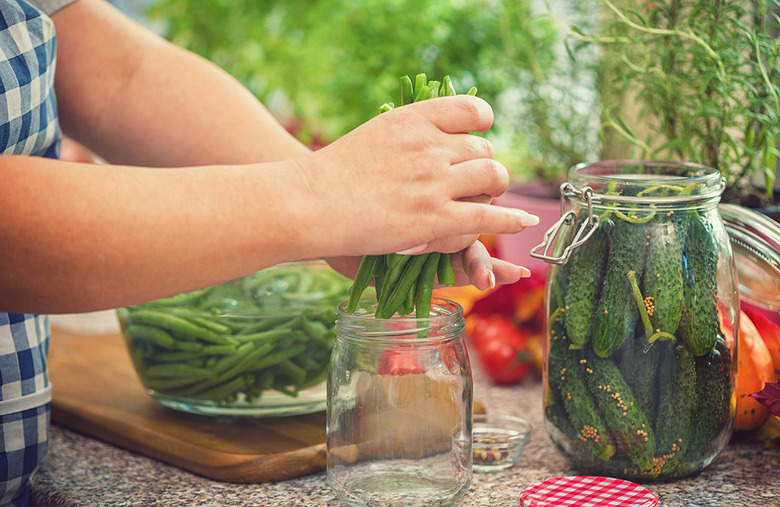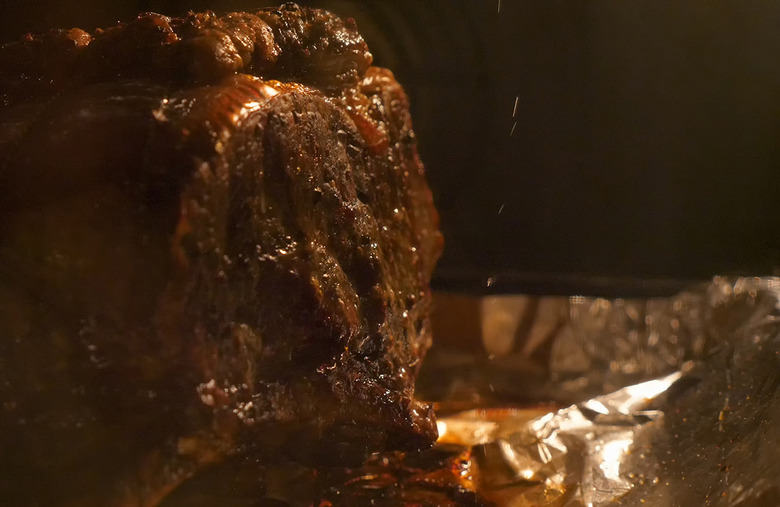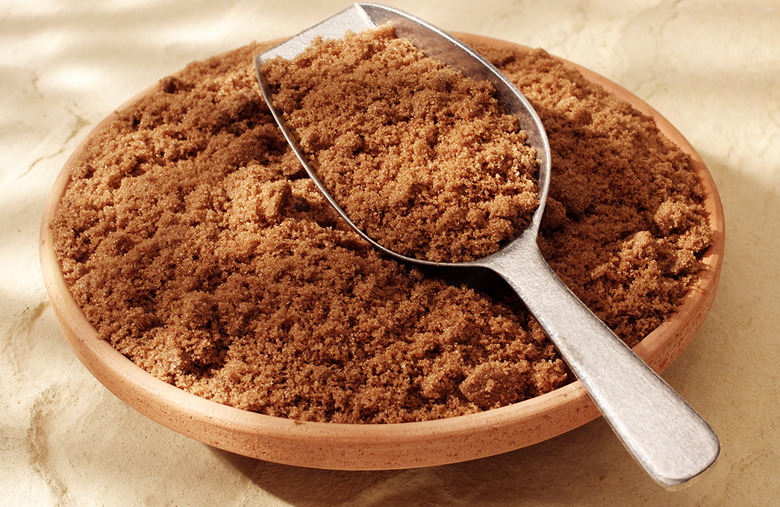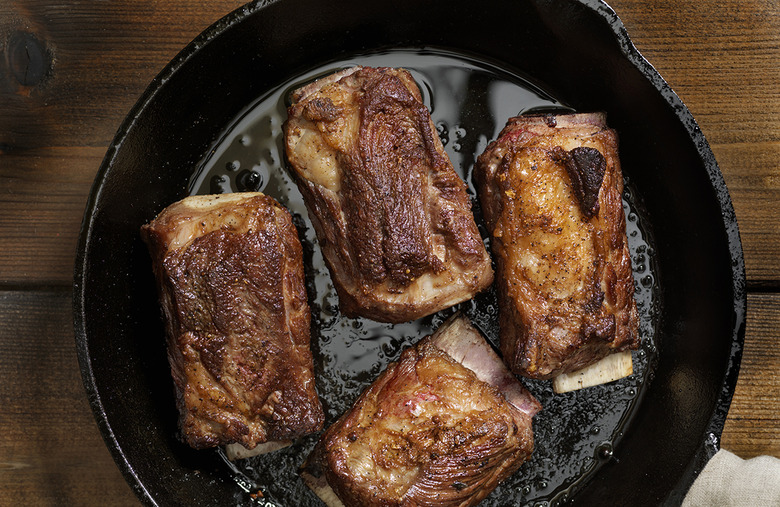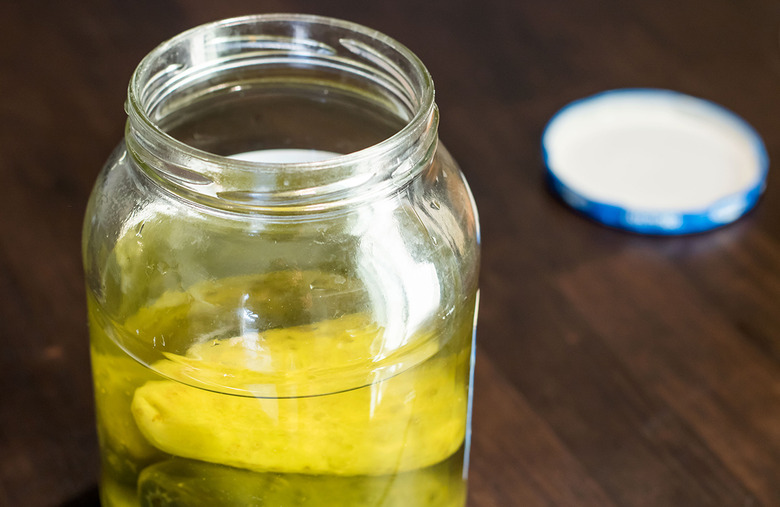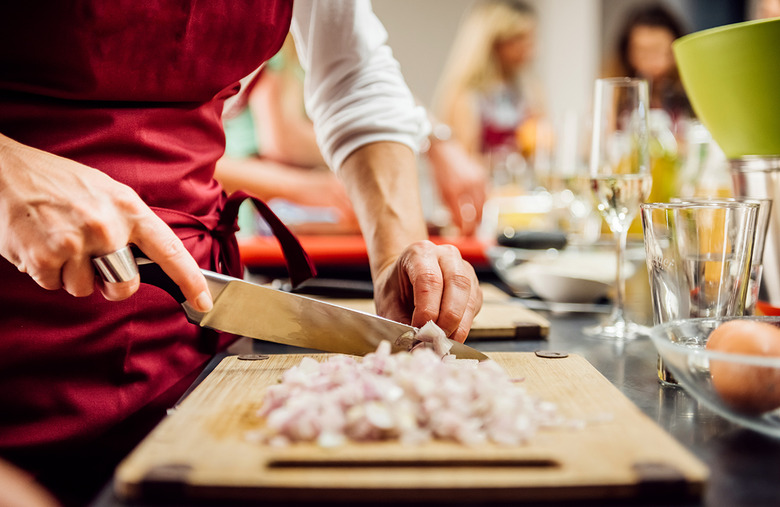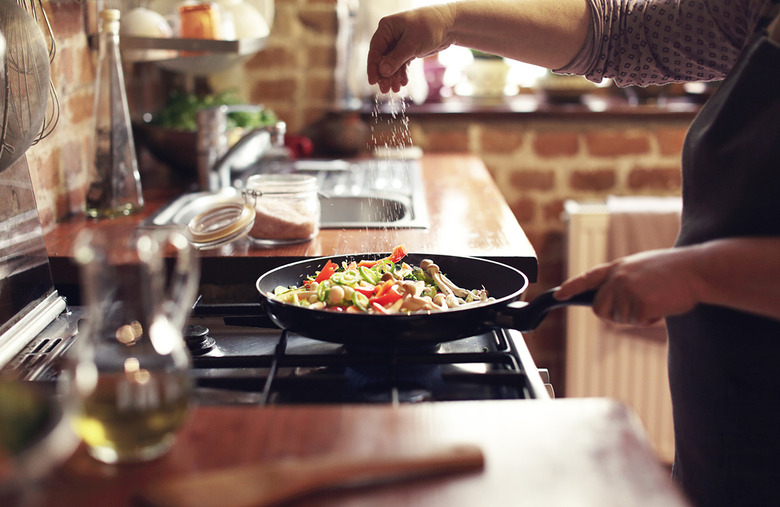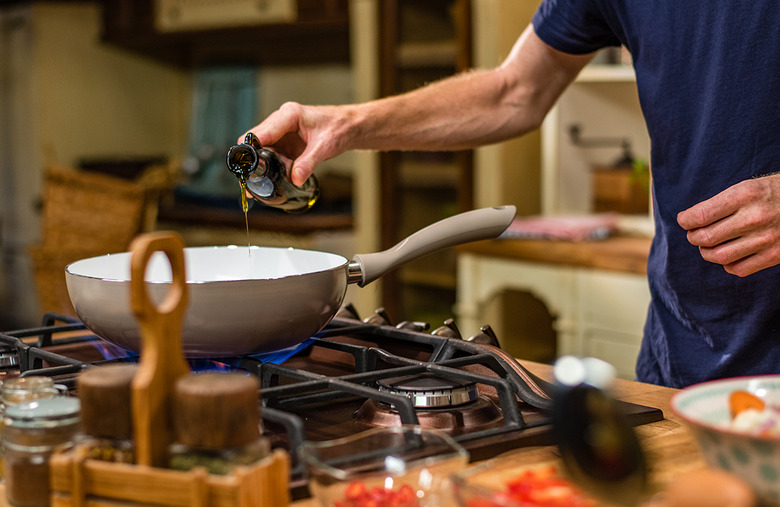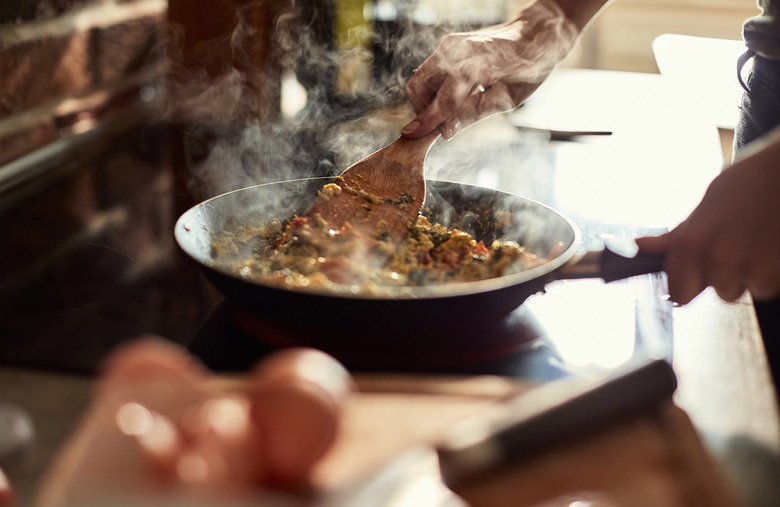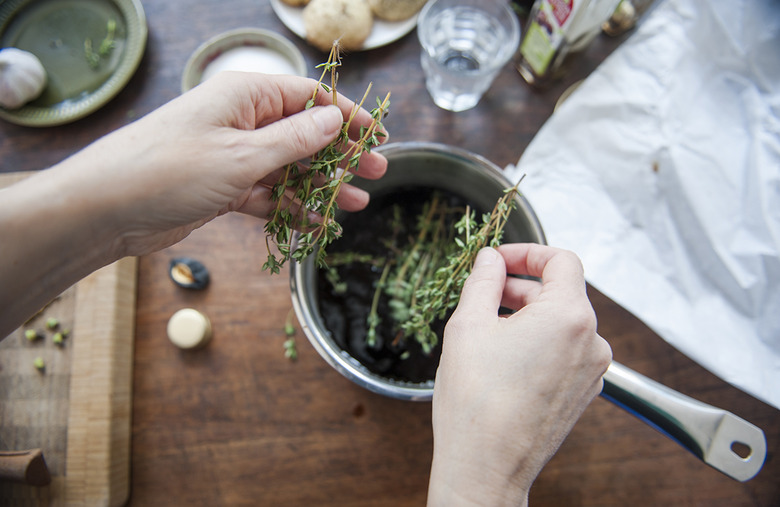Restaurant Secrets Every Home Cook Should Know
If you're a food-driven soul, going out for a really good meal is one of life's great pleasures. But, if you want to recreate those Michelin-starred meals on your own, there's hope. We spoke to a few chefs and they filled us in on all of the cooking tips and tricks they use in their own kitchen so you can too.
Use pasta water to make silky sauces
If you've ever wondered why pasta at some of the best Italian restaurants in America always seems more decadent than the stuff you make at home, the answer is very simple: pasta water. When you cook pasta, some of the starch stays behind in the water after the pasta is strained. Most restaurants finish their noodles by adding a small ladleful of starchy pasta water to the pan, and this helps to bridge the gap between pasta and sauce.
Finish your pasta in the sauce
In order to get the best, restaurant-worthy pasta, you should finish cooking your pasta directly in the sauce. This technique gives the noodles a chance to absorb even more flavor so the dish comes together as one, instead of simply being an assembly of different ingredients. Not cooking the pasta directly in the sauce is just one of many ways you've been cooking your pasta all wrong.
Use cast-iron pans more
So many home cooks rely rather heavily on their non-stick pans for a majority of the cooking they do. But a good cast-iron pan can be used to cook all sorts of recipes. Want to know how to cook a steak perfectly on the stove? It's a cast-iron pan. The dense metal is nearly immune to damage and creates a nice even finish on all of your dinner favorites. And if you're unsure of how to put your cast-iron skillet to use, here's a complete guide on ways you've been using the kitchen tool all wrong.
Put a wet towel under your cutting board
Just like softening butter with a rolling pin is a genius hack for amateur bakers, putting a wet towel under your cutting board is a restaurant-worthy trick for home cooks. Dampen either a paper or cloth towel, ring it out so it's only slightly wet, and place it neatly beneath your cutting board. This will stop any potential sliding around that may occur while prepping your vegetables.
Taste as you cook
So many cooks, including professionals, fail to taste their food as they cook. And how? It's the best part. Sampling the ingredients while they simmer is a guaranteed way to season with intent and make the most delicious food possible. And seasoning liberally is one of the secrets all the steakhouses know.
Make sure your pans are hot enough
Have you ever made food and found that half of it ended up stuck to the pan? That's because you're not letting the pan get hot enough before tossing in your ingredients. Not letting your pans warm up for 5 to 10 minutes before cooking is just one of the bad cooking habits you need to stop now.
Don’t overlook your pantry
The days of saying "I have no food in the house" are over. In your pantry, there is likely a stockpile of dry and canned goods waiting to be turned into a masterpiece. Chef Rick Doherr of Cafe Rule & Wine Bar in Hickory, North Carolina says home cooks should challenge themselves to create recipes out of the items in their cabinets. But, if you get stumped, here are some great recipes you can make using pantry staples.
Save leftover wine
You know that little bit of wine at the bottom of the bottle that you never seem to polish off? Don't chuck it. Cooking with wine is one way to amp up just about any dinner dish. It's also one of the best ways to make cheap steaks tender and delicious.
Save bones for broth
Next time you pick some chicken wings clean to the bone, don't ditch the scraps. Here's a cooking hack you might have learned from your parents: Saving bones is a great way to amp up your broth. Simply rinse the bones and simmer with water, plus anything else you'd like to add. Allow the mixture to simmer for at least 12 hours or until the bones start to disintegrate. Then simply strain and save the liquid for up to 10 days.
Don’t be afraid of salt
More often than not, the primary reason home-cooked food does not taste like restaurant food is salt. While one obviously does not want to transform a healthy meal into a salt lick, an extra pinch of salt here and there can go a long way toward turning a bland meal into a wonderful one. Not shying away from ingredients like salt and butter is just one of the reasons your grandma was the best cook.
Save herb stems
While there are plenty of foods you should never freeze, one unlikely suspect that is great to stick in the freezer is herb stems. Instead of chopping up your fresh herbs and throwing the stems away, save them in the freezer for later cooking. Use dill stems when cooking potatoes and other stems in soups or with meat.
Make your own stock
It's no secret that the most comforting foods, like casseroles and soups, are made from scratch. And ingredients like butter, cream and stocks are often used to bump up the flavor and viscosity of our favorite dishes. But you may not have those rich ingredients at home. Instead, try making your own stock by using leftover bones and vegetable scraps.
Make a ‘flax egg’ if you’re out of eggs
No one likes getting the urge to bake or cook and then realizing that you're out of eggs. But with this kitchen hack, that's no longer an issue. While there are endless ways to cook an egg, there are also ways to substitute something else for them. If you're out of eggs or looking for a vegan substitution, you can create a "flax egg" by mixing flax seeds with water.
Use lemon and fresh salt to clean
If you've ever planned a dinner with salmon or tilapia, you know how difficult it can be to get rid of that fishy smell afterward. Luckily, there is an all-natural cleaner that even chefs use to wash their hands and cutting boards after working with fish. Carmine DiGiovanni, Chef for David Burke Hospitality Management, recommends mixing up some fresh lemon and salt and use it to wash up; it's just one of many natural cleaning tips for your home.
Use ice cube trays to freeze sauces
Believe it or not, there are plenty of kitchen items in your home that can be repurposed, and ice cube trays are certainly one of them. Instead of making ice cubes, freeze leftover soup, marinades or even bloody mary mix in your ice cube trays. Thaw out the cubes later to make some of these quick and easy freezer meal recipes.
Acidulated water is magic
To prevent certain vegetables like avocados, apples and celery from oxidizing and turning brown, turn to acidulated water. Though it may sound like some complicated culinary term, it's quite simple — just mix water and lemon juice (or some other kind of acid, such as lime juice or vinegar). Believe it or not, sprinkling your avocados with this mixture is just one way to make your food last longer.
Don’t play with your food as it cooks, let it be
We know how tempting it is to flip over that steak or stir those vegetables up while they're sauteing, but disrupting your food while it cooks is a big no-no. So the next time you're making a perfect, home-cooked meal, resist the urge to play with your food while it simmers. The final product will be worth the wait.
Get your mise en place
Mise en place is French for "everything in place" and is practically a mantra for restaurant chefs. If tools and ingredients aren't where they should be during a busy service, things can go awry very fast. In order to avoid the descent into chaos, make sure you have all of your ingredients prepped and ready to go. Setting yourself up for success will make all the difference when you come to the cooking part and ensure that easy recipes take up only an hour or less of your time.
Invest in a Microplane
While there are some hands-on things you can do differently to make your cooking restaurant-worthy, there are also some tools that can get the job done for you, and chef Michael Gaines, of Xperience Restaurant Group, thinks a Microplane is one of them. This kitchen gadget is great for grating cheese, citrus zest, garlic and more. So, the next time you head over to your favorite grocery store, pick up one of these handy tools and say goodbye to chunky garlic pieces once and for all.
Pickle your vegetables
If you're like us, you're a bit ambitious when it comes to choosing vegetables at the store. You get a little bit of this and a little bit of that, until you're left with a bunch of wrinkled veggies in your fridge. Instead of throwing them out, pickle them. Pickling vegetables is quite easy. All you really need is some salt, sugar, vinegar and a jar. And if you want to give this trick a go, you'll need a month-to-month guide on seasonal produce for all of your pickling adventures.
Use aluminum foil under roasts
There are many ways you've been cooking dinner staples, like turkey, steak and chicken all wrong. And according to restaurant professionals, one way is by not putting aluminum foil under your roasts. One chef recommends creating a "thick ring" out of aluminum foil to place under chicken, turkey and beef so that the roast doesn't sit in oil when it's placed into the oven. This creates a nice brown crisp at the bottom.
Put brown sugar in the blender if it hardens
To replicate the best steakhouses in America, you have to add some sort of rub to your steaks and, according to Food Network's Chef Lamar Moore, brown sugar is a great place to start. While many home cooks throw away brown sugar when it gets hard, it's actually still good. One chef recommends pulsing it in the blender to soften it up for a rub that will create a restaurant-worthy crust on your steak.
Use metal frying pans
If you're just itching to speed up the cooking process of that steak or chicken, metal frying pans might be for you. While there are plenty of tips and tricks for frying food at home, one chef recommends using metal frying pans. That way you can easily finish off your dish by placing it in the oven. This saves time and you don't have to wash an extra pan — a win, win.
Save pickling liquid
We already covered the usefulness of pickling your vegetables, but you can also use that pickling liquid once you're done with it, according to Jeff Vucko, chef at the Travelle at The Langham in Chicago, Illinois. You can use the leftovers to make vinaigrettes and dressings. Repurpose some old mason jars for all of your pickling needs.
Sharp knives are crucial
Forget a kitchen full of fancy equipment — all you really need is a couple of very sharp knives. Not only are sharp knives safer to use, but they also enable you to get things sliced and diced at a much faster and more efficient rate. Whether you're slicing some tomatoes to add to a mouthwatering grilled cheese or holding back tears while slicing an onion, the answer is always a sharp knife.
Season in layers
Even if you're cooking easy and fun recipes with your kids, make sure you're teaching them all of the best tips and tricks. And one cooking lesson that everyone should know is to season your food in layers rather than all at once. Making soup? Start by lightly seasoning the onions as they soften, season again when you add stock, and finally, when everything is cooked and finished, taste once more and adjust the seasoning as needed.
Good quality oil can transform a dish
Ever wonder why all of your dinner favorites taste so much better when you're at a restaurant? The secret's in the oil. If you have just one bottle of really delicious olive oil, you can take a good dish and make it great. Amp up all of your summer favorites by using it as a finishing oil on top-notch bruschetta or sprinkle it on top of mozzarella and refreshing ripe tomatoes.
Don’t overcrowd
While it may be tempting to throw all of your favorite seasonal veggies into one pan, it's crucial not to overcrowd your cooking vessel. Food needs some breathing room while it simmers to ensure it cooks evenly. If you have too much to cook and too small a pan to prepare it in, either cook in batches or just use two pans. There will be more to clean up, but it'll be worth it.
Garlic doesn’t have to be a pain to peel
There's no denying that garlic is great. It's a food that lowers your blood pressure and it's delicious. But garlic is also a pain. It gets stuck to the sides of your knife and it's tricky to peel. Restaurant chefs recommend crushing the cloves first or even baking your garlic in the oven to easily peel the skin off.
Substitute honey for sugar
Honey can be used for more than just remedying a sore throat. In fact, honey — or even maple syrup — makes a great sugar substitute. This is a great way to make your favorite dishes just a little bit healthier while you quarantine at home.
Fresh herbs and spices are better than dry ones
It's pretty obvious that fresh parsley has more flavor than those dry flakes you keep in the pantry, but dried spices can vary in freshness depending on when they were purchased. Spices do not have an infinite shelf life, so take a quick inventory of the expiration date on all of your most-used spices. And if that surprised you, be sure to check out our guide on how long common foods like meat and eggs last in your fridge and freezer.
More from The Daily Meal:
Dessert Recipes That Are Difficult But Will Impress
Quick Dinner Dishes You Can Make Out of Cans
Coffee Tips and Recipes to Make at Home
20 Brilliant Meal Prep Hacks That Will Save You Tons of Time
